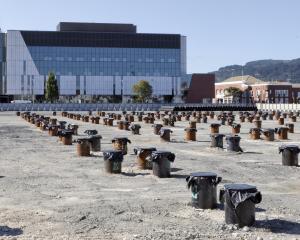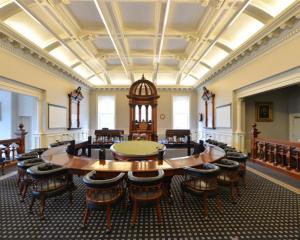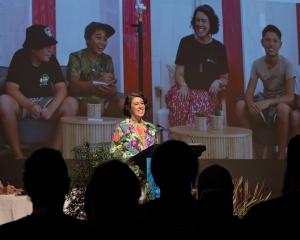Conversation between the four flatmates is likely to be in Te Reo Maori, and tikanga (customs) - such as removing your shoes at the front door and keeping the communal space tidy - are usually observed.
Tamarangi Harawira (22), of Whakatane, Danica Walker (19), of Auckland, Werehiko Hauiti (20), of Hokianga, and Fallyn Flavell (25), of Rotorua, left their whanau and friends to study at the University of Otago.
With Te Wiki o te Reo Maori, (Maori Language Week) beginning today, the flatmates said people should not be afraid of giving the language a try.
"People shouldn't be shy. If you can't pronounce it, at least you are trying," Miss Flavell said.
One of their first impressions on arriving in Dunedin was just how few Maori there were compared with their home districts in the North Island.
"I got a massive culture shock. In the North Island, there are Maoris everywhere," Miss Flavell, an indigenous studies masters student, said.
Miss Flavell, also the tumuaki (president) of the Te Roopu Maori students' association, said that after flatting with non-speakers of the language she lost "confidence in speaking Maori".
"I don't have that now."
Initially homesick, the Regent St flatmates said they had adjusted to coming to Dunedin.
The flatmates had all attended kohanga reo early on, and in the case of Mr Hauiti, a first-year computer science and Maori student, did not start studying English until he attended high school.
While most of their family could speak te reo, some had been actively dissuaded from speaking their native tongue by the education system in place at the time and the number of fluent speakers declined.
"The Maori language was closed off to some of them. They had the language beaten out of them," Miss Flavell said.
The establishment of kura kaupapa Maori schools (Maori-language immersion schools) had helped revitalise the language and the flatmates indicated they would want their children to study under the immersion system.
Miss Walker, a second-year Phys Ed student, said cultural protocols such as people removing shoes when they entered the house, removing hats when they ate, and no sitting on the table, were observed by flatmates and visitors alike.
Learning the language, which was an ongoing lesson for all speakers, helped keep the culture alive, she said.
Mr Harawira, a third-year politics and Maori student, said the flatmates tried to speak Maori at all times, with Wednesdays reserved as te reo day, where even texts and emails were sent in Maori.
As an example, last Wednesday the flatmates went to the supermarket and received "interesting looks" from fellow shoppers as they talked in te reo, Miss Walker said.












